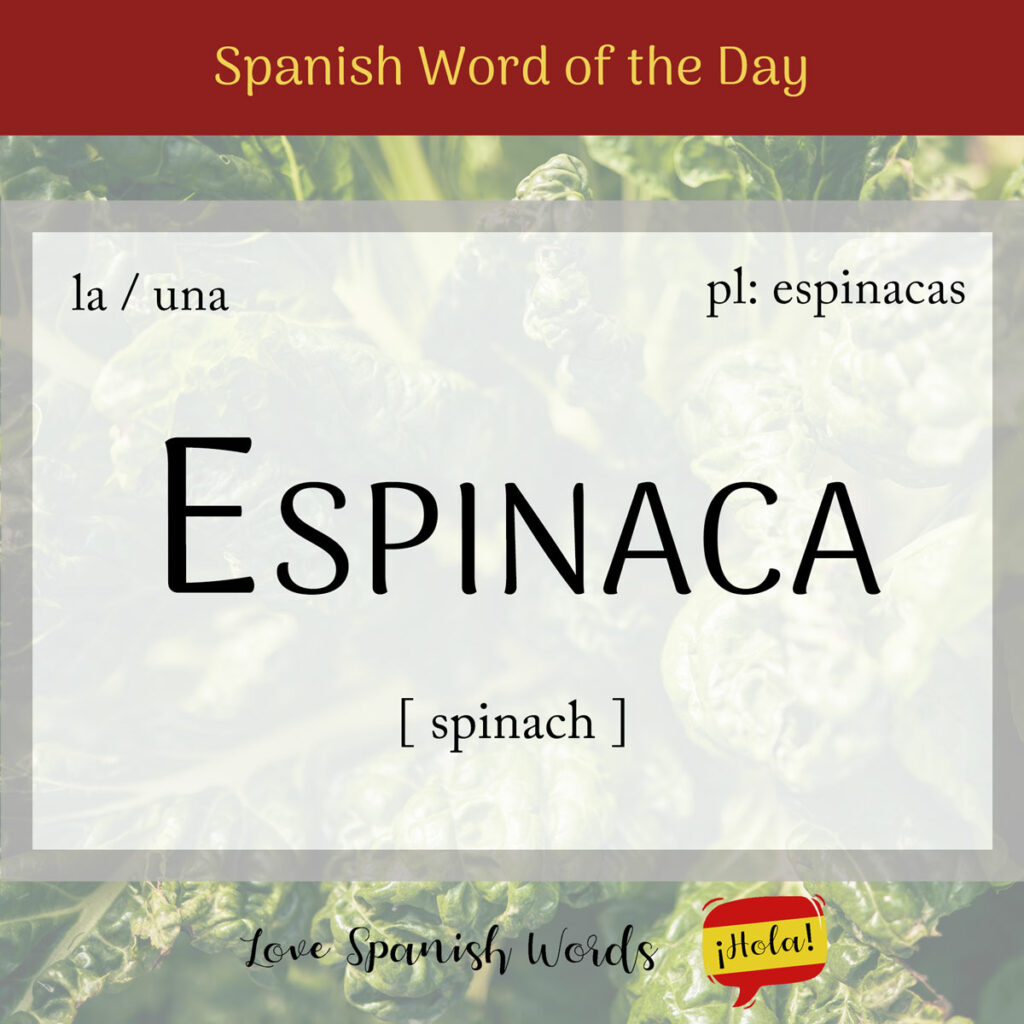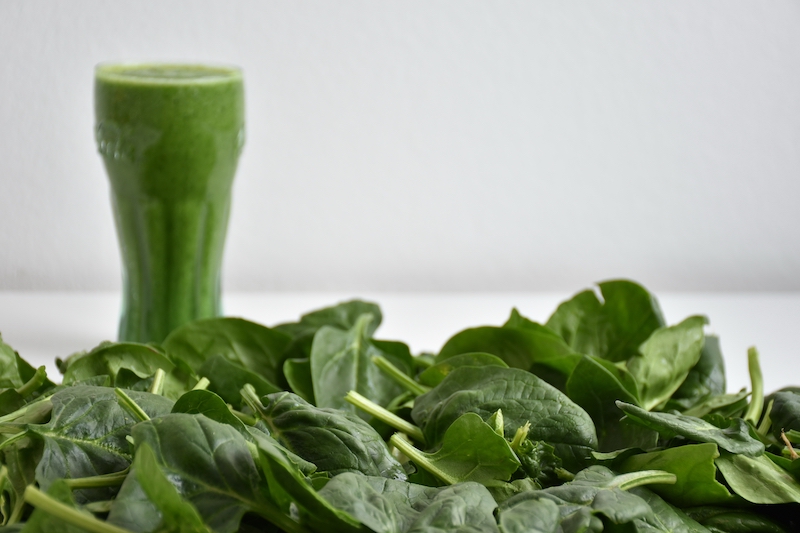The word Spanish word espinaca, which means spinach in English, derives from the Arab word ispanakh. Spinach itself originated in old Persia (now Iran) where it was cultivated for the first time.
Since being cultivated, it has become a basic vegetable used in many dishes around the world.
Latin American Pronunciation
European Pronunciation

Espinaca is a feminine noun and it takes the following definite and indefinite articles.
- la espinaca = the spinach
- las espinacas = the spinach
- una espinaca = a spinach
- unas espinacas = some spinach
When talking about spinach, we usually refer to it in its plural form in Spanish, espinacas. This is because it’s more common to eat a group of spinach leaves, not just one.
Below are some different types of espinacas we use in salads.
- espinaca semisavoy = semi-savoy spinach
- espinaca de hoja lisa = smooth-leafed spinach
- espinaca de hoja rizada = curly-leafed spinach
- espinaca savoy = savoy spinach
- espinaca baby = baby spinach
- espinaca de Nueva Zelanda = New Zealand spinach
- espinaca Malabar = Malabar Spinach
Me gustan mucho los batidos de plátano con espinacas.
I really like banana smoothies with spinach.
There are various ways espinacas are used in the kitchen. Below are a few:
- espinacas salteadas = sautéed spinach (slower and lower heat) / stir-fried spinach (fast and high heat)
- crema de espinacas = creamed spinach
- ensalada de espinacas = spinach salad
- salsa de espinaca = spinach dip
- sopa de espinacas = spinach soup
- batido/licuado de espinaca = spinach smoothie
Some popular dishes for espinacas include crema de espinacas (spinach cream), omelette de espinacas (spinach omelet), and pechuga de pollo rellena de espinacas (spinach stuffed chicken breast).

Spanish colloquial expressions featuring ‘espinaca‘
One phrase that uses espinacas is No todo es espinacas, which translates to Not everything is spinach. This expression means that not everything is as healthy or beneficial as it appears. It is similar to the Spanish phrase No todo es color de rosa (Not everything is rosy), which suggests that not everything is easy or positive.
Spinach is often associated with the cartoon character Popeye who became strong and muscular by eating spinach. In Spanish, the phrase Más fuerte que Popeye con espinacas (Stronger than Popeye with spinach) is often used to describe an extremely strong person with muscles.
Spanish idiomatic expressions featuring ‘espinaca‘
Estar hecho una espinaca
Literal translation: to be made a spinach
English meaning: to be thin or fragile (looking like a spinach leaf)
Echar espinacas al plato
Literal translation: to add spinach to the plate
English meaning: to add something beneficial and healthy to a situation (such as good advice)
Darle a las espinacas
Literal translation: to be giving it to the spinach
English meaning: to be eating healthy, trying to improve one’s diet

